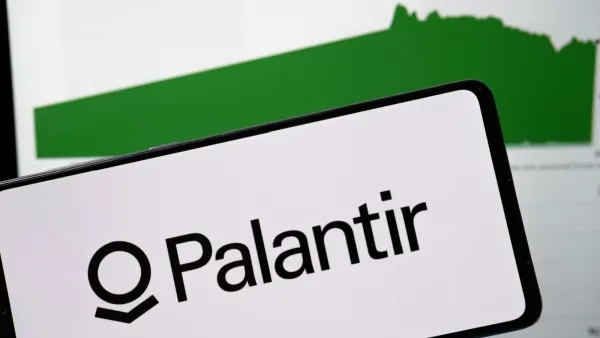Paris AI Summit: Europe Commits €300 Billion to Lead Global Race for Trustworthy AI

Europe takes bold steps in the global AI race, pledging massive investments in AI factories, sustainable infrastructure, and ethical development. The summit marks a shift from safety discussions to action-oriented goals for AI's societal impact.
The content below is auto generated by Accunote AI:
AI Development Focuses on American Values and Security
The Trump administration will ensure AI systems developed in America are free from ideological bias and protect free speech rights. They aim to safeguard American AI and chip technologies from theft and misuse, working with allies to strengthen protections. The administration will close pathways for adversaries to obtain AI capabilities that threaten global security. They view AI as having revolutionary applications in economic innovation, job creation, national security, healthcare, and free expression, focusing on opportunities rather than safety concerns.
Foreign Adversaries Exploit AI for Malicious Purposes
Hostile foreign adversaries have weaponized AI to rewrite history, surveil users, and censor speech. Some authoritarian regimes have stolen AI to enhance military intelligence and surveillance capabilities, capture foreign data, and create propaganda undermining other nations' security. The Trump administration aims to ensure American AI technology remains the global gold standard and becomes the partner of choice for other countries and businesses, countering these threats.
US Maintains Global AI Leadership and Investment
The United States possesses all components across the full AI stack, including advanced semiconductor design, frontier algorithms, and transformational applications. The administration plans to maintain this leadership by ensuring the most powerful AI systems are built in the US with American-designed and manufactured chips. The US has preserved an open regulatory environment, encouraging innovation and R&D investments. Over half of the estimated $700 billion to be spent on AI in 2028 is likely to be invested in the United States.
AI Policy Prioritizes American Workers and Workforce Training
The Trump administration will focus on policies ensuring AI makes workers more productive, leading to higher wages, better benefits, and safer communities. They refuse to view AI as purely disruptive, automating away jobs. The administration will ensure America has the best-trained workforce globally, with schools teaching students to manage, supervise, and interact with AI-enabled tools. For major AI policy decisions, American workers are guaranteed a seat at the table, with government, businesses, and labor organizations working together.
AI Revolution Reshapes Industrial Landscape
A new industrial revolution, comparable to the invention of the steam engine or Bessemer steel, is on the horizon driven by AI technology. This revolution could be hindered by overregulation deterring innovators or allowing AI to be dominated by large players seeking to censor or control users' thoughts. There is parallel between the current AI revolution and the introduction of the telegraph 160 years ago, both seen as transformative for communication and society.
AI Integration Transforms Workforce Dynamics
In fields such as law, medicine, and manufacturing, AI is supplementing rather than replacing work done by Americans. The administration believes a US labor force prepared to use AI will attract businesses that have offshored roles. For creative professionals, AI is more likely to be used as a utility tool for minor tasks rather than replacing human creativity entirely. While there are concerns about job losses, new jobs will emerge as AI is adopted. The key is being prepared to work alongside AI.
AI Accelerates Scientific and Economic Progress
AI has enabled major scientific breakthroughs, like AlphaFold's ability to predict protein structures, dramatically accelerating research that previously took years. This allows hundreds of thousands of researchers to develop vaccines and other applications, demonstrating AI's potential to drive rapid scientific and economic progress. The state-of-the-art AI has progressed from about 50% effectiveness a year ago to around 85% today in completing complex sequences of tasks accurately.
AI Applications Span Multiple Sectors
The summit emphasized the acceleration of work on AI applications across various sectors, including applied science, mobility, defense, and security. Large groups from France and international countries formed new partnerships and signed contracts with AI players. Some countries are investing heavily in AI applications for agriculture to address growing population needs and improve food production capabilities. The exciting aspect of AI lies in its connection to the real and physical economy. The technology's success isn't limited to software development - it relies heavily on workers across manufacturing plants, healthcare facilities, and energy infrastructure.
AI Assistants Enhance Productivity and Efficiency
For the average person, AI will help accelerate processes, provide quicker answers, and improve efficiency, enabling faster access to renderings, ideas, and examples. The real promise of AI assistants lies in their integration into various workflows. In a 2 to 4 year timeframe, AI will be deeply embedded in tasks such as learning, medical imaging analysis, and doctor-patient interactions, significantly impacting productivity across multiple sectors.
AI Development Raises Ethical and Regulatory Concerns
While AI offers numerous benefits, there may be challenges, particularly in more sensitive or complex areas. Universities, as one of humanity's longest-standing institutions, may face difficulties adapting to AI advancements. The high energy intensity of AI models needs to be addressed, focusing on efficient and sustainable insights. Data needs, design, and resource requirements should be built around an open, accessible nature with regulations and a wide range of applications.
AI Governance and Regulation Dynamics
When assessing demands for aggressive AI regulation, it's crucial to consider whether these requests come from market incumbents seeking to maintain their advantage rather than genuinely prioritizing public safety. Establishing rules for AI is not counter to innovation but necessary for its advancement. The goal is to create an international framework that avoids fragmentation of efforts while promoting innovation, acceleration, and investment in trustworthy AI.
AI Development Landscape and Challenges
The current phase of AI development is described as a period of competition, innovation, and sovereignty. Countries and organizations are striving to establish their positions in the global AI landscape while maintaining control over their technological advancements. Having AI alone does not create desired outcomes. It's important to have guardrails, government involvement, and institutions willing to create norms, standards, and expectations for these powerful technologies. As AI capabilities grow, there is a need for standards and governance frameworks. Governments and private companies should work together to create standardized ways to detect deepfakes and address other AI risks.
Trust and Transparency in AI Systems
Trust in AI requires certified data and the development of diverse models. Open access and multiple types of models that reflect global diversity are necessary. Open source models and the opening of databases for training these models are crucial. Transparency of algorithms is vital for establishing trust in AI. While open data can accelerate innovation, proper protection of privacy must be ensured. A trust framework is needed to assure citizens that their privacy is protected and to distinguish between deep fakes and accurate information. Trust is a critical component in scaling AI for citizen benefit. Key aspects include data quality, security, and transparency.
AI Equity and Global Collaboration
It's noticeable to realize a world of AI haves and have-nots. While some companies and countries are racing ahead with record investments, most developing nations find themselves left out. There is a call for collective effort to ensure that artificial intelligence bridges the gap between developed and developing countries, rather than widening it. AI should accelerate sustainable development, not entrench inequalities. The success of artificial intelligence depends on establishing trust and ensuring fair, open access across all continents and countries. Without trust, AI adoption and global spread will be hindered.
AI Power Concentration and Accessibility
Currently, the power of AI is concentrated in the hands of a few entities. This raises concerns about the equitable distribution of AI's benefits and the need for broader participation in shaping AI's development and deployment. Equitable access is crucial to prevent divides between those in power and the rest of the population, as well as between older and younger generations or different regions within countries. This presents a challenge for both public authorities and the private sector. Governance is crucial, especially in the global context where compute power, talent, data, and financial resources are concentrated.
AI Security and Creative Rights
Protection from cyberattacks is necessary to create a secure environment for working with AI. Respect for creativity must be upheld, ensuring that each creator's rights are recognized. Author's rights, copyright, and similar protections for artists, reporters, and writers must be maintained. The need to develop open-source systems, build quality datasets, address cybersecurity concerns, tackle disinformation and deepfakes, and ensure technology is effective in local ecosystems.
International Regulations Challenge US Tech Companies
US tech companies face significant regulatory challenges internationally. Innovators of all sizes must navigate complex rules like the EU's Digital Services Act, which imposes extensive requirements for content removal and misinformation policing. For smaller firms, complying with GDPR involves substantial legal costs or risking large fines, leading some to block EU users entirely. Foreign governments might potentially tighten regulations on US tech firms with global operations, viewing this as detrimental for both the US and those countries.
Authoritarian Partnerships Pose Long-Term Risks
Partnering with authoritarian regimes for subsidized technology often results in negative long-term consequences. Such collaborations can lead to nations becoming dependent on authoritarian powers that may seek to infiltrate and control information infrastructure. This highlights the risks of pursuing short-term cost savings at the expense of long-term technological independence and security.
AI Investment Landscape Accelerates Globally
Global AI investments are accelerating rapidly. France and international sources announced 109 billion euros in private funding for AI, while the European Union committed 200 billion euros. This investment race includes countries like India, Canada, and the United States, indicating fierce global competition in AI development. A European AI Champions initiative pledges 150 billion euros from providers, investors, and industry, while France's Invest AI initiative will add 50 billion euros, aiming to mobilize a total of 200 billion euros for AI investment in Europe. This public-private partnership, focusing on industrial and mission-critical applications, is the largest in the world for trustworthy AI development.
European AI Strategy Embraces Distinctive Approach
Europe aspires to be a leading AI continent, embracing an AI-integrated way of life to boost competitiveness, protect security, improve public health, and democratize access to knowledge. The continent is investing in its strengths and building its own AI capabilities, focusing on complex applications using unique industrial and manufacturing data and know-how. European AI embraces open source, which can spread faster alongside proprietary systems. This approach, combined with Europe's focus on complex applications and cooperative nature, has led to a booming AI startup scene, with the number of unicorns increasing tenfold in just a few years.
AI Infrastructure Development Accelerates in France
France is investing 10 billion euros in 12 AI factories, representing the largest public investment in AI globally. These factories aim to provide computing power access to companies of all sizes, allowing startups and scientists to test and train their models on supercomputers. France is advancing this concept further with AI gigafactories, which are very large data and computing infrastructures for large models. The goal is to replicate the success of CERN in Geneva, creating a collaborative environment for researchers, entrepreneurs, and innovators to work together.
Finland Prioritizes AI Development and Sustainability
Finland has made AI a national top priority, increasing public investment in research and innovation with the goal of reaching 4% of GDP by 2030. The country focuses on enabling infrastructure, access to quality data, and world-class supercomputers. Finland prepares national AI strategies through close collaboration with all stakeholders, bringing together public and private sector investments. The country was chosen to host one of seven European AI factories and is working on building next-generation pan-European supercomputers through RUMI AI. Finland's context allows for quick launches of pilots and expert experiments, such as using AI for legislative drafting.
European AI Regulation and Collaboration Efforts Intensify
The AI Act aims to provide a single set of safe rules across the European Union for 450 million people, replacing 27 different national regulations. This approach balances the need for competition with collaboration in AI development, while ensuring public confidence and safety. Europe is demonstrating renewed ambition in AI development, focusing on investing in talent training, particularly for younger generations, increasing research positions at the university level, and consolidating data with appropriate access frameworks. The European Commission announced a program to set up a data center in Europe for public research and startups.
AI Development Accelerates with Balanced Approach
Third AI summit in a year coincides with release of three new generations of increasingly powerful AI models, with some expecting models approaching human reasoning within a year. Focus shifts from safety groundwork to action-oriented goals, formulating vision for AI's societal impact and accelerating Europe's progress in global AI race. While prioritizing AI opportunities, safety concerns shouldn't be disregarded. Emphasis on unleashing innovators and using AI to improve nations' well-being, comparing it to powerful tools like weapons dangerous in wrong hands but incredible for liberty and prosperity when used correctly.
AI race is ongoing with constantly moving frontier, now focusing on adoption in key economic sectors and addressing crucial challenges. Goal is to bring AI to industry-specific applications, harnessing its power for productivity and people. AI viewed as opportunity for societal improvement, enhancing human capabilities and solving global challenges. However, concerns arise about AI's rapid advancement and societal readiness, questioning if humanity is prepared for an AI-driven future approaching faster than ever before.
Responsible AI Adoption and Governance
AI requires human responsibility, comparable to alcohol, cars, or firearms beneficial or harmful depending on use. Focus should be on preparing humans for ethical and responsible AI use, rather than fearing AI itself. Proper preparation and responsible use can lead to positive societal integration. UN offers inclusive, transparent platform for AI solidarity. Global digital compact at summit establishes first universal agreement on AI governance, uniting parties around shared vision of technology serving humanity.
Creation of independent international scientific panel on AI crucial for translating vision into reality, promoting common understanding of AI risks, benefits, capabilities, and opportunities, bridging knowledge gaps. Expert developing AI action plan avoiding overly precautionary regulations while ensuring all Americans benefit from technology's transformative potential, inviting other countries to follow this model if suitable. AI's relationship with humanity emphasized while AI brings intelligence, humans hold key to collective future.
Current AI Initiative Launched for Public Interest
Current AI partnership launched to ensure AI serves public interest, making it more open, accountable, and accessible by uniting governments, researchers, civil society organizations, and communities. Initiative expands access to high-quality public and private datasets, invests in open-source tools, develops systems to assess AI's social and environmental impact. Approach aims to shape AI technology serving humanity inclusively.
Initiative focuses on three main areas: making data accessible in privacy-preserving ways, ensuring resilient open-source AI ecosystem, deeply involving impacted communities for problem-centric approach. Collaborative effort needed to shape AI's future positively, bringing together funders and stakeholders. Importance of diverse AI development emphasized, ensuring benefits extend beyond big tech companies for equitable and responsible outcomes.
AI's Societal Impact and Ethical Considerations
AI's potential to transform society raises critical questions: Who decides what problems AI should solve? Who benefits most from deployment? Who bears costs of mistakes? AI quickly evolved from science fiction to powerful force reshaping various life aspects. AI summit discussed future of societies, children, planet in AI age, exploring impact on environment, labor, diversity, control measures. AI has inspired hope and fear, attracted significant investments, set up clashes in business and technology sectors.
Examples of AI's positive potential include helping oncologists provide tailored cancer treatments, sparking children's imagination and creativity, explaining medical reports in simple language. However, biases need careful consideration. AI writing code for humanity, impacting economy, security, society. Differs from other technologies due to rapid development and deployment, requiring governance, standards, shared values to build trust.
AI Infrastructure Demands Robust Energy Solutions
AI development necessitates substantial energy infrastructure. The AI economy will primarily transform and depend on the physical world, not just the digital realm. A medium-sized data center consumes electricity equivalent to 100,000 households, significantly impacting global electricity trends. AI companies require secure, affordable, and sustainable electricity supplies. The industry's power requirements emphasize the importance of reliable power and high-quality semiconductors.
Energy Sector Faces AI-Driven Challenges and Opportunities
The surge in AI infrastructure, particularly data centers, creates significant challenges for the energy sector. A time gap exists between data center construction (less than a year) and electricity infrastructure development (about five years for transmission lines), potentially causing project delays or cancellations. Conversely, AI accelerates energy technology innovation, optimizing electricity systems, increasing grid and transmission line efficiency, and improving weather prediction. It's creating new business models and momentum for nuclear power and geothermal energy technologies.
Sustainable Energy Sources Crucial for AI Development
The ability to have sustainable, low-carbon energy sources is crucial for AI infrastructure, especially data centers. France's civil nuclear power model is highlighted as a strong point, with several large-scale, privately funded data centers announced at the summit. However, mmany countries are deindustrializing and removing reliable power sources from their grids, which is counterproductive for AI development.
AI and Environmental Sustainability Intertwined
AI can be a force for climate action and energy efficiency, but power-intensive AI systems are already straining the planet unsustainably. It's crucial to design energy-efficient AI algorithms and infrastructures, integrating AI into smart grids to optimize power use. From data centers to training models, AI must run on sustainable energy to fuel a more sustainable future. Protecting the planet and biodiversity is paramount, given AI's significant energy requirements. Fostering AI that seeks low carbon electricity and more frugal models will enable less energy consumption.
AI Summit Highlights Global Collaboration and Governance
The Paris AI Summit brought together diverse leaders, including presidents, prime ministers, and business executives, underscoring the global nature of AI development and the need for international cooperation. France supports launching an AI foundation to promote cooperative AI beyond Europe, including partners in the global south, aiming to make AI a force for good and accessible to all. The UN provides an inclusive forum for cooperating and complementing existing mechanisms such as the OECD AI principles, G7, and the Global Partnership on AI, as well as regional efforts by various international bodies. This global dialogue can help align governance efforts worldwide, reinforce their interoperability, uphold human rights in AI applications, and prevent misuse.
Initiatives for Inclusive AI Development Launched
A new Coalition for Sustainable Artificial Intelligence has been launched as part of the Paris AI Action Summit, with over 90 entities joining, including leading AI companies, digital infrastructure firms, AI research labs, and investment firms. This multi-stakeholder effort aims to ensure AI develops in the interest of the planet and all people, including the developing world. Additionally, the AI Foundation has been launched with 400 million euros committed, structured as a public-private partnership addressing trust in AI development. France will contribute approximately 100 million euros to this initiative.
Global AI Capacity Building Efforts Emphasized
The global digital compact calls for building AI capacity in developing nations. Concerted efforts are needed to build sustainable digital infrastructure at an unprecedented scale, foster talent, and train workforces to develop, deploy, and maintain AI systems. A global AI capacity building network is proposed as an economic necessity and a moral imperative. This approach empowers peoples and nations to become active participants in the AI revolution, not just users. There's a worldwide desire to participate in AI development and be as prepared as leading countries in the US and Europe, with discussions ongoing about using open-source, decentralized data to create decentralized innovation hubs.
Multilateral Approach to AI Governance Advocated
Defending a multilateral approach and diverse expression of artificial intelligence is crucial. The Global Partnership on Artificial Intelligence, launched 7 years ago under the G7 and now housed with the OECD, involves 44 countries currently, with expectations to expand to 60 in the near future. Various international organizations are involved in AI governance, including the United Nations' Digital Compact, UNESCO, the Francophone Organization, and the Council of Europe, aiming to consolidate elements needed for trustworthy AI during this period of acceleration and innovation.
India's Proactive Stance on AI Development
India welcomes the decision to set up the AI Foundation at the Council for Sustainable AI and proposes to host the next summit. The country advocates for making the Global Partnership for AI more inclusive of the global south's priorities, concerns, and needs. India has developed its own AI model and infrastructure during its G20 presidency, making compute power available to startups and researchers at affordable costs.
Trump administration fosters fair AI competition
The Trump administration aims to maintain a level playing field for big tech, small tech, and other developers through its laws and regulations in the AI sector. This approach is designed to foster fair competition and innovation across the industry, regardless of company size or market position.
AI explores art and culture, raises concerns
During the AI week, a weekend was dedicated to exploring AI in art and culture. In recent years, governments, businesses, and nonprofit organizations have used AI to promote unpopular and ahistorical social agendas, such as AI image generators depicting George Washington as black or World War I American soldiers as women. Currently, AI provides coding suggestions to software engineers, but work is underway to develop AI that can autonomously write programs based on given instructions, potentially transforming the software development process.
Addressing AI communication and perception challenges
Brilliant code writers who created AI may not be the best at communicating its potential impacts. There's a need to help people understand AI's implications. The average person's perception that AI will take jobs is causing unnecessary panic. This situation is comparable to when search engines were created, and there were concerns about libraries becoming obsolete. Open science and open-source tools will be important for responsible AI development. Sustainable AI will be integral to establishing trust for both public and private players. Observatories for social and energy issues have been established to address climate concerns and AI accessibility.
Finland leads in sustainable AI development
Finland is addressing the energy efficiency demands of AI sustainably, with one of the world's most eco-efficient data centers running on green energy and circulating generated heat back into the community as part of a circular economy approach. The country is also building competence through attracting and educating world-class talent, including launching a European ELLIS II institute.
Inclusive approach to AI development
AI development still in early stages, providing opportunity for diverse voices to shape its future. Importance of community input, public capital, shared vision for society in guiding AI's development stressed, suggesting call for inclusive and collaborative approaches to AI governance and implementation. Development banks and the philanthropic community should provide catalytic funding to jump-start capacity building worldwide. Academia and thought leaders can help navigate through this complex landscape. The goal is to move towards an AI that is shaped by all of humanity for all of humanity. They all expressed support for the Sustainable AI Coalition, viewing it as an excellent way to raise standards for more sustainable AI development and implementation.
IEA launches AI and energy observatory
The International Energy Agency (IEA) is launching an observatory for energy and AI in April. This open-source initiative will analyze data centers' electricity needs, electricity plans, and the impact of AI on energy technology. The observatory aims to allow global learning from best practices in the intersection of AI and energy.
ITU contributes to sustainable AI efforts
The International Telecommunication Union (ITU) is contributing to sustainable AI efforts through various initiatives. These include the AI for Good platform, which focuses on skilling and innovation, the CODAS work for sustainability in digital services, and collaboration with standards partners on sustainable AI standards. The ITU is also advancing climate commitments through its Green Digital Action Initiative, which spans all regions.
Naver market positionGoogle
Google's approach to AI development balances bold innovation with responsible practices, acknowledging the dual-use nature of AI technologies. This strategy creates tension but is deemed necessary. For instance, while image and video generation AI can enhance creativity, it also poses risks like enabling deepfakes. To address this, Google is developing technologies such as SynthID watermarking to detect AI-generated content.
In the short to mid-term (2-4 years), Google is focusing on AI that can accomplish tasks described in natural language. Project Mariner, a browser extension under development, exemplifies this effort. The technology aims to enable AI to act on behalf of users based on natural language instructions, potentially revolutionizing task automation.
Naver
Naver is developing an AI-enabled search tool designed to identify information more comprehensively and connect users more deeply with content aligning with their intents and interests. In the commerce sector, Naver is applying AI to help users discover stores and products from a wider range of sellers, fostering a platform where diverse tastes and personalities coexist.
On Naver's Webtoon platform, an online comic manga service, an AI curator recommends titles by identifying user preferences, helping them explore more genres and stories. Creators on Webtoon can utilize an AI painter tool to focus on creative storytelling or detailed sketching. Additionally, sellers on Naver's commerce platform can leverage AI-enabled marketing, customer service, and product display solutions, allowing them to concentrate on essential tasks like product development.
Naver has successfully defended its domestic search market without government intervention, becoming one of the few companies globally to achieve this. It has established itself as the go-to service for the majority of the Korean population, with a growing user base worldwide. The company's success extends beyond search, as it has expanded its services over the past 25 years to include social media, commerce, fintech, content, and cloud offerings.
As the third company globally to develop its own hyper-scale AI model, Naver has positioned itself as a significant player in the AI market. This achievement, combined with its extensive experience and know-how in search and other digital services, has enabled Naver to become a viable alternative to big tech companies in both the global search and AI markets.
Naver's AI development strategy leverages its ownership of key fundamental AI technologies and large-scale services used by millions of users. This unique position allows the company to develop high-performance AI models more efficiently, potentially narrowing the technological gap between Naver and global big tech giants. The company is integrating AI across its services, using it to recreate various types of content as everyday tools for users and to connect users, creators, and sellers in more refined ways.
Looking forward, Naver's strategy combines its experience, know-how, and large-scale services with its own AI technologies. The company aims to create a flywheel effect that brings bigger opportunities to digital ecosystems. Naver strives to become a new option that adds to the diversity of the global AI ecosystem, leveraging its position as the third alternative in the global search market to achieve similar success in AI.
Naver faced unique challenges in addressing the needs of Korean language users. With a limited number of digitalized Korean documents available, the company had to develop innovative solutions to compete against global search engines. This led to the creation of a digital ecosystem tailored to the specific requirements of Korean users, focusing on providing real-life information rather than just website links.
Naver Korean language business
Naver's journey began as a search engine 25 years ago, but the company has since diversified its offerings significantly. To compete against global search engines, Naver developed solutions specific to the Korean language, especially when digitalized Korean documents were scarce. This led to the realization that users were seeking real-life information rather than just websites, prompting the creation of Naver's digital ecosystem.
The company introduced a service allowing users to ask and answer questions, integrating this engagement with their search function. This user-generated content became a valuable source of information for many Koreans. Naver continues to develop services that connect users, enabling their content and information to be linked to the world through search. The company's employees constantly evaluate their readiness for the future, particularly given Naver's size compared to global giants.




